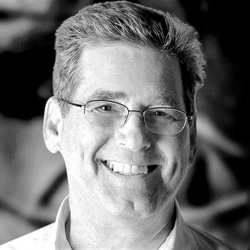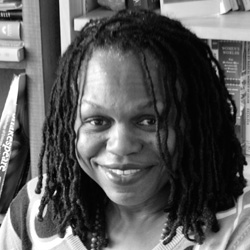When Charlotte Porter and Helen Archibald Clarke founded Poet Lore in 1889, they sought to create a poetry journal that filled a void in the literary landscape. Many journals of that day were set on congratulating established writers rather than taking the risk of creating a space for emerging voices.
Today, 127 years later, the magazine lives on as the country’s oldest continuously published poetry journal. To celebrate this milestone during National Poetry Month, the magazine will host a free birthday celebration at 7:30 p.m. April 28 at The Writer’s Center in Bethesda. Authors Bruce Weigl and M. Nzadi Keita will read from their respective works and sign their books.
“They are both superb poets who’ve published with us and are very different from one another,” Jody Bolz, Poet Lore’s executive editor. “We thought they would make a good pair. We really like to get some variety. We aren’t looking for two poets (for the celebration) who write on the same subject or in the same way.”

A Vietnam War veteran, many of Weigl’s poems discuss his experiences there. Two of his books, “The Abundance of Nothing” and “Song of Napalm,” have earned nominations for Pulitzer Prizes. Weigl previously served as an editor for Poet Lore. “He’s a terrific poet and a wonderful critic and a long-time creative writing teacher,” Bolz said.
“Brief Evidence of Heaven: Poems from the life of Anna Murray Douglass” is Keita’s most recent book. She is an accomplished poet who has been published in multiple journals. “Her work just blew us away,” said Genevieve DeLeon, Poet Lore’s managing editor. “We published her a couple of years ago and have been following her closely. It was a big honor to have her at this upcoming reading. …We are really proud of the combination (of authors), and I think it is going to be an amazing reading.”
Published twice a year, each issue of the journal clocks in at about 160 pages. The spring magazine, which came out in April, features poetry, book reviews and essays.
Yet, in a world engrossed in social media and click bait articles, how does the journal stay fresh and current? “Our strength is that we read everything without regard to reputation, including poems that come to us handwritten from people who are incarcerated and (have) never published a poem,” Bolz said.

The journal was the first to publish Reginald Dwayne Betts, an American poet that has earned acclaim for his works including “Coming of Age in Prison” and “Bastards of the Reagan Era.”
Bolz and E. Ethelbert Miller, her co-executive director, read about 1,000 submitted poems a month, choosing about two percent to publish. “We really believe in the importance of the way poetry sounds,” she said. “It’s not just prose broken into stanzas and into lines. When we get together once a month or every six weeks to discuss the poems that each of us has found interesting, …We read them out loud to each other. A lot of times something that looks good on the page, when you read it out loud, it is very awkward. It doesn’t hold your attention. It just seems boring and wordy. You don’t hear any music. That’s an important test for us. How it sounds when we read the things to each other. It helps us make our decisions.”
DeLeon said the poems are placed in a narrative arc around the same thematic territory because each issue is meant to be read cover-to-cover.
When you mention the word “poetry” to some people, they may cringe remembering having to analyze it in high school and college. But Bolz believes that “when you come to a terrific reading, you have the pure pleasure of listening to poetry and most people really respond to that in a very deep way. Over the years when I have been interviewed about why I edit a poetry journal or why I am a poet myself, I say you ask most Americans if they read poetry and they say, ‘No. I like fiction’ or ‘I like nonfiction.’ But at the most important moments in their whole lives–when they get married, when they have a christening or a naming ceremony, at a funeral, a bar mitzvah, the only thing they want to read at that event is a poem and I think that is a really important thing to think about. People seek the language of poetry at the most important and emotional moments in their lives.”